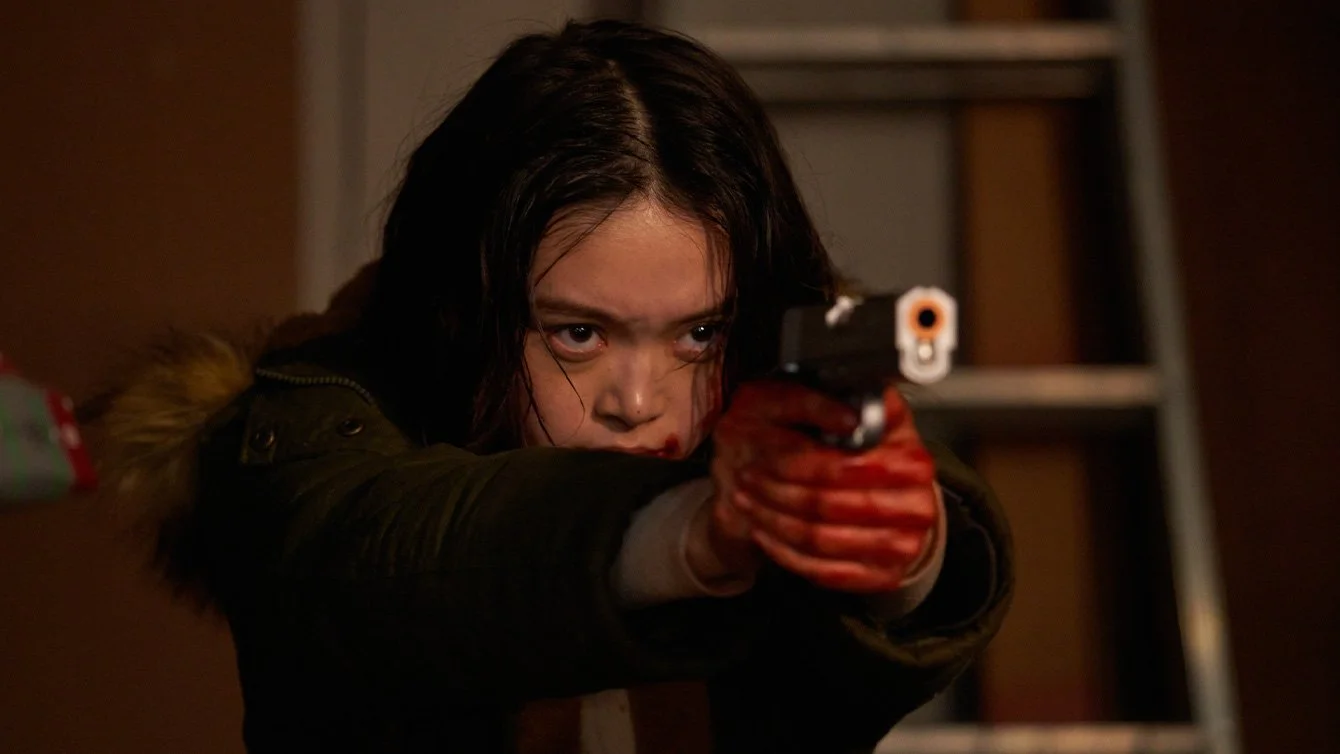‘Ghost Killer’ Review
Few discoveries are as satisfying in cinema as witnessing an action director whose approach feels fresh compared to the current batch of action films. Almost every fight scene directed by Kensuke Sonomura since his directorial debut, Hydra, has been electrifying and worth watching simply for the visceral feeling it guarantees. While Hydra was a low-budget affair that felt painfully so, the action rivals some of the best in cinema today, and Sonomura would later go on to be the action director for Yugo Sakamoto’s Baby Assassins franchise, which remains a delightfully subdued blend of action and comedy befitting its youthful characters. Sonomura’s third feature-length film in the director’s chair benefits from his past work, bringing Baby Assassins star Akari Takaishi into the fold and letting Sakamoto handle screenwriting duties. The result is an entertaining but slightly shallow genre-hybrid that never fully realizes its delightful concept. Despite its shortcomings, Ghost Killer features an amusing performance from Takaishi and continues Sonomura’s streak of kinetic martial arts sequences that elevate an underwhelming screenplay.
Quick hands parrying sharp knives are where Sonomura has always shone in his action, as characters are forced to confront each other in close quarters and move at a frantic pace to ensure they escape death. Ghost Killer opens with an amuse-bouche of the action to come before hit man Kudo (Masanori Mimoto) meets his untimely demise. Wasting no time setting up its premise, Sakamoto’s screenplay shifts gears to the true star of the film: Fumiko (Takaishi). Polite to the point of being a pushover and having very little agency over her own life, Fumiko’s life is turned upside down when she stumbles on a bullet casing and finds herself inexplicably linked to its last victim, Kudo. Now seeing his ghost everywhere, the two soon discover that Kudo has the potential to possess Fumiko and exact vengeance on those who killed him.
The first half of Ghost Killer is played as the action-comedy that it suggests as Kudo takes over Fumiko’s body to take out abusive boyfriends and lowlifes. At the same time, Takaishi depicts the inner struggle between what her body is doing and what she’s thinking. Similar to Logan Marshall-Green’s performance in Leigh Whannell’s Upgrade, it provides a significant boost of levity amidst the more grisly criminal underworld Fumiko finds herself navigating. Takaishi is fantastic in the role with a performance akin to her Baby Assassins character. The unfortunate side effect, though, is that Fumiko’s character arc is the more interesting one, but her body is used to expand upon Kudo’s narrative and follow it through to its end. As a result, there's more action and room for Takaishi to showcase her skills as both an action star and comedic presence; however, narratively, the film stalls.
A significant portion of the film is devoted to establishing the rules of possession while Kudo and Fumiko get to know one another. Digging beneath the surface of Kudo’s violent past is mildly interesting, but witnessing Mimoto in action is the far more tantalizing prospect. Fortunately, the way Sonomura depicts the possessions allows both Mimoto and Takaishi to showcase their fighting abilities. The cuts to black can feel a bit jarring whenever a possession occurs (there is so much room for something more visually distinct to happen there), but it allows Kudo to be the character fighting on screen when, in reality, Fumiko is the one physically present. Mimoto’s mostly wordless assassin is more intense than humorous when juxtaposed against Takaishi’s constant muttering to herself, with similar intricate choreography. All it does is demonstrate why the concept at the heart of Ghost Killer is brilliant. What’s a shame is that it’s not used more effectively. Once it shifts to being a straightforward crime drama, Sakamoto’s screenplay becomes dull. It relies on some dazzling final action sequences to energize the film, rather than on how those might relate to the possession angle.
Sonomura continues to be an impressive action director desperately searching for a film to frame his blistering fights around. The Baby Assassins franchise remains the best display of what he’s capable of when another director is behind the camera, but it’s disappointing that Sakamoto’s screenplay for Ghost Killer flounders when trying to be more than just an action-comedy. The choreography is exceptional, and the premise is promising. Still, outside of a few laughs and a committed performance from Takaishi, Ghost Killer is surprisingly lacking in the energy its cast and crew have proven to deliver in the past. It’s arguably Sonomura’s best film as a director and by far the most entertaining, but the potential left on the table remains a disappointing constant in his directorial career.


